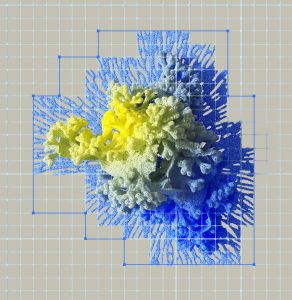Artificial intelligence (AI), startups come and go — some never make it beyond a pitch deck. In contrast, others scale only to falter under the weight of colossal manufacturing and R&D costs. But once in a while, a company emerges that defies these odds, forging its own path with speed and surprising success. That’s exactly what’s happening with Positron. This Reno-based AI hardware startup just raised a sizable $23.5 million in funding to disrupt the AI landscape with energy-efficient, made-in-America chips.
Backed by Flume Ventures, Valor Equity Partners, Atreides Management, and Resilience Reserve, Positron aims squarely at an arena dominated by Nvidia. The company’s AI accelerators are already shipping to data centers and “neoclouds” across the U.S., a rare feat for a chip startup that launched just two years ago, in 2023. Its success underscores Positron’s rapid product-market fit, a milestone the team attributes to agility, tight control of its domestic supply chain, and a relentless focus on cost-effective performance.
Table of Contents
ToggleA New Contender in AI Compute
Positron’s Atlas systems are delivering 3.5x better performance per dollar and 3.5x greater power efficiency than Nvidia’s flagship H100 GPUs regarding inference workloads. While the GPU has long been the workhorse of AI compute, Positron is leveraging a memory-optimized architecture that achieves over 93% bandwidth utilization—significantly higher than the 10–30% typical GPU-based systems.
Positron’s FPGA-powered servers support trillion-parameter models and are plug-and-play compatible with widely used platforms like Hugging Face and OpenAI APIs. As a result, Atlas systems deliver 70% faster inference at 66% lower power consumption than H100/H200 setups, cutting data center capital expenditures by 50%.
Yet, it’s not just about raw performance. Positron is positioning its entirely U.S.-made product line as a strategic alternative in a sector beset by geopolitical tensions and fragile global supply chains.
“With this funding, we’re scaling at a pace that AI hardware has never seen before—from expanding shipments of our first-generation products to bringing our second-generation accelerators to market in 2026,” says Mitesh Agrawal, newly appointed CEO of Positron. “Our solution is growing rapidly because it outperforms conventional GPUs in both cost and energy efficiency while delivering AI hardware that eliminates reliance on foreign supply chains.”
Leadership Steered by Seasoned Innovators
Agrawal’s recent arrival at Positron signals an ambitious new chapter. Having been an executive at Lambda—where he helped grow annual revenue from $500,000 to $500 million and secured over $1 billion in funding—Agrawal’s record speaks for itself. He joins Co-Founders Thomas Sohmers (a Thiel Fellow and Chief Technology Officer) and Edward Kmett (Chief Scientist, mathematician, and functional programming savant) in driving Positron’s next growth stage.
“We’ve built our memory-optimized architecture from the ground up to tackle trillion-parameter models without forcing data centers to reinvent their infrastructure,” says Sohmers. “Our goal has always been to deliver AI performance without compromising energy efficiency or flexibility, and that philosophy has guided every aspect of our design.”
Sohmers’s emphasis on a hyper-optimized memory pipeline enables Positron’s systems to handle massive model sizes while consuming less power—a boon for AI inference tasks that typically generate high electricity bills and heat output.
A Fully American Alternative
While most AI chip production often happens abroad, Positron is adamant about its Made-in-America mantra. Its supply chain is domestic from end to end, mitigating risks with overseas manufacturing and ensuring tighter quality control.
“Investing in domestic AI hardware is a strategic imperative to securing America’s global AI posture,” says Scott McNealy, Operating Partner at Flume Ventures. “Positron is proving that world-class AI compute doesn’t have to come from overseas, and we’re excited to support their mission to make the U.S. a leader in AI hardware manufacturing.”
This U.S.-based approach could be a key differentiator in a market where tariffs, export controls, and political tensions can disrupt supply chains almost overnight. It also resonates with a growing movement in tech circles to prioritize national resiliency and self-sufficiency.
Meeting the Power and Cost Challenge
The demand for AI compute has skyrocketed in recent years, but many legacy data centers simply aren’t built to handle the 10,000-watt power draw of top-tier GPUs. Positron’s energy-efficient architecture sidesteps that issue by consuming far less power, allowing older facilities to participate in AI compute with minimal infrastructure upgrades.
“The demand for AI compute is skyrocketing, and enterprises are searching for viable alternatives that are energy and cost-efficient for the long term,” says Rob Reid, Co-founder of Resilience Reserve, one of Positron’s investors. “What sets Positron apart is not just its cost efficiency, but its ability to bring AI hardware to market at an unprecedented speed and provide high performance per watt.”
For resource-strapped data centers or enterprises that balk at the rising costs of AI, Positron offers what it describes as the next big leap in inference-based compute: high performance, lower energy consumption, and a flexible architecture that can scale as AI workloads continue to expand.
As AI permeates more industries—from healthcare to finance to manufacturing—companies are waking up to the reality that not all AI hardware solutions are created equal. A “one size fits all” GPU strategy often becomes cumbersome and expensive. Positron is betting its entire roadmap on this fact, ramping up production of its Atlas systems while developing next-generation accelerators that they claim will push performance per watt even further.
For entrepreneurs, the lesson is clear: challenging entrenched incumbents like Nvidia requires innovative technology and a disruptive market angle. Domestic manufacturing, unmatched energy efficiency, or the ability to integrate seamlessly with widely used AI platforms. Positron has checked all those boxes, and its momentum shows no sign of slowing down.
Featured Image Credit: Photo by Pixabay; Pexels
















